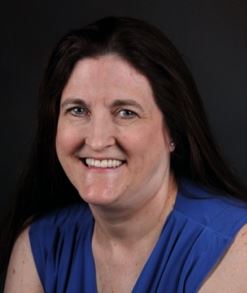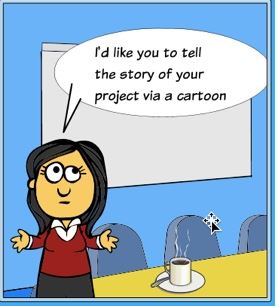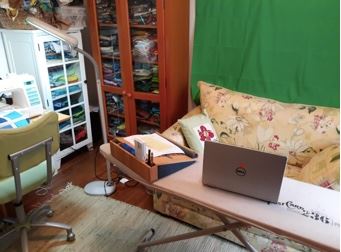 School name: Spelman College
School name: Spelman College
Type of school: Historically Black liberal arts college for women
School locale: Atlanta, GA
Classes you teach: I’ve taught many courses over the years. In recent years I’ve taught Developmental Psychology, Psychometrics, Learning & Behavior, Statistics II, Research Seminar, and Honors Seminar.
Average class size: It depends on the class; I’ve taught as few as 3 or as many as 55 in a section. Most classes are between 15-25 students, I’d guess.
What’s the best advice about teaching you’ve ever received? I’ve learned a lot over the years from my STP colleagues and others, but I can only pinpoint a few pieces of advice per se. My big brother, who is a math professor, advised me when I started teaching to never prepare more than one class session in advance. I’ve modified that somewhat, but I have found that preparing a bit each day as the semester unfolds lets me respond to the needs of each class in a relatively agile way. Plus it indulges my penchant for procrastination. I think I’m going to have to change my ways if we move fully online in the fall, though.
What book or article has shaped your work as a psychology teacher? So many; I can’t even pick one SoTL article or book. I’m a developmental scientist by training and always go back to the classic developmental theorists to inform my teaching. Bruner, Vygotsky, Thelen, and others all get thrown in. Right now I’m venturing into developmental aspects of narrative identity theory and working out how I can incorporate that more fully and intentionally into some of my courses.
Briefly tell us about your favorite lecture topic or course to teach. I generally enjoy all of my courses, ‘tho I like to switch them up every few years so I don’t get in a rut. Although I haven’t taught it in a while, I really enjoyed teaching introductory statistics classes. I had fun helping students get past any mental barriers that they set up before taking the class, and seeing their eyes light up when they ‘got it’. If they didn’t absolutely hate the class, they gave me credit for being a good teacher – it gave me a pretty low bar to leap to be thought of as ‘good’!
 Briefly describe a favorite assignment or in-class activity. One that the students and I have a lot of fun with comes from Learning and Behavior. They complete a major behavior-modification project for which they use learning principles to change one of their own behaviors in a way that supports sustainability. They write up a report on their results, but my favorite part is asking them to tell the story of their subjective experience along the way. Each student develops a 12-panel cartoon that provides an overview of how she responded to the project at different points in time. Because it is a cartoon, I think students lower their guard and tell more authentic stories than they would in a more traditional write-up. We share the cartoons on the last day of class and during the last part of the final exam period, which ends the semester on a fun note.
Briefly describe a favorite assignment or in-class activity. One that the students and I have a lot of fun with comes from Learning and Behavior. They complete a major behavior-modification project for which they use learning principles to change one of their own behaviors in a way that supports sustainability. They write up a report on their results, but my favorite part is asking them to tell the story of their subjective experience along the way. Each student develops a 12-panel cartoon that provides an overview of how she responded to the project at different points in time. Because it is a cartoon, I think students lower their guard and tell more authentic stories than they would in a more traditional write-up. We share the cartoons on the last day of class and during the last part of the final exam period, which ends the semester on a fun note.
What teaching and learning techniques work best for you? Again, it depends on the class. Mixing up interactive lectures with small-group activities in larger classes usually works pretty well for me. And I like incorporating storytelling when I can. But I think I am most effective working one-on-one with students as they develop and conduct research projects for research seminar courses and thesis projects. I’m a better mentor than I am a teacher, I think.
 What’s your workspace like? Right now my workspace is my sewing room, and my desk is an ironing board. Surprisingly, it makes a good sitting/standing desk.
What’s your workspace like? Right now my workspace is my sewing room, and my desk is an ironing board. Surprisingly, it makes a good sitting/standing desk.
Three words that best describe your teaching style. Reflective, transparent, old-school
What is your teaching philosophy in 8 words or fewer? Build trust and share the journey. (“Don’t say anything stupid” is a close second)
Tell us about a teaching disaster (or embarrassment) you’ve had and how you dealt with the situation. Many years ago I had students create short PSA videos about something in psychology. I thought it would be a good idea to have each team film their videos in class while other teams continued to work on their projects. It was not. I focused so much on the filming schedule that I stopped interacting with the rest of the class, and they just started loudly chatting among themselves. When I tried to ask them to quiet down and re-focus in the auditorium-sized classroom, my voice came out as a frustrated shriek, which didn’t help. I apologized and talked things through with the class, but I think my rapport with that group of students was damaged that day. I learned a lot from that episode.
What is something your students would be surprised to learn about you? It seems students are often surprised that I have a life outside of my office at all, and that I have had a lot of adventures over the years. (Happy to chat about those over a meal or drink at a teaching meeting when we get to the After Times and can do that again, by the way!)
What are you currently reading for pleasure? Usually I read historical mysteries for fun, but right now I’m reading When in Rome, a travel memoir that I found in a Little Free Library. It’s along the lines of A Year in Provence, about a young woman who moves from Australia to Italy as an adventure. I love to travel and spent time in Rome as a grad student, so I can relate to a lot of her experiences adapting to a new language and culture.
What tech tool could you not live without? Yikes. I’m using more and more tech tools each year, it seems. I guess the ones I rely on most are email, the course LMS, and Dropbox/Google Docs. And my laptop, of course. I used to get things done before I had any of these, but I don’t remember how.
What is your hallway chatter like? What do you talk to colleagues about most (whether or not it is related to teaching/school)? In Normal Times we often talk about campus goings-on, families, or what’s going on in society. As I write this in early June 2020, our Zoom Happy Hours tend to drift to the same things that occupy the whole nation: Covid 19, the fight for social justice, and how the two intersect. But we still talk about families too.
